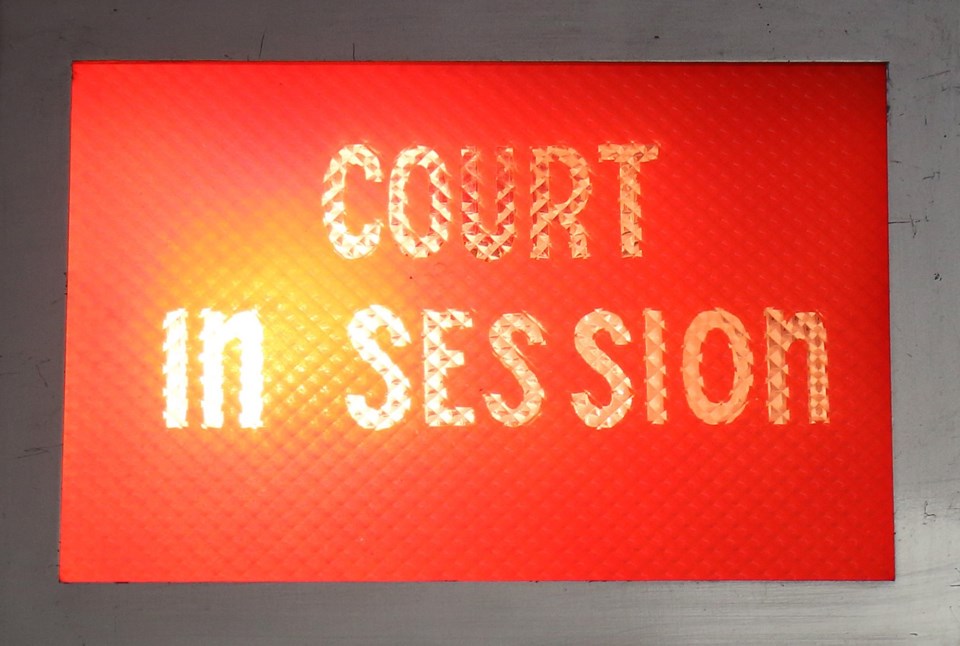A judge has voided a 2011 marriage involving a man who suffered a serious brain injury and the woman he had broken up with prior to the accident.
The ATV accident took place in June 2011 near Gravenhurst, leaving the man with serious brain injuries that took months to rehabilitate and left long-term effects. He was released from Health Sciences North in Sudbury in October of that year under the care of two of his sons, who ensured that he took his medications and looked after him.
Three days after his release, however, he left the home and was picked up on the roadway by the uncle of a former girlfriend, without the knowledge of the man's sons. The uncle took the man to Barrie, where his former girlfriend was living under a court order because of a drunk driving conviction.
Once there, they were quickly married by an officiant secured by the woman's family. By the time his sons were able to locate him through credit card receipts, the wedding had already taken place.
At that point, the woman claimed partial ownership of a house the couple had shared before they separated and before the accident. But the court heard the man had gained sole ownership of the house by that time, paying the woman $52,000 for her share in 2010. A total of $27,000 went to her, and the man paid another $25,000 to the woman's lawyers whom she needed to pay to settle an outstanding bill.
She agreed to leave the home after receiving a settlement and moved her furniture out, but as of June 2011, had yet to vacate the premises.
In deciding the case, the judge listened to an array of medical experts and members of the man and woman's family in an attempt to determine whether the man had the mental capacity to agree to the marriage, due to the side-effects of his brain injury.
It emerged during that testimony that an aspect of the man's injury is the fact he is unaware he is mentally impaired. When his son reached him on his cellphone on the day of the wedding, for example, he told him not to worry, that he was on his way to Barrie to do an estimate on a house foundation job.
That worried his son because, before the accident, the man was in the landscaping business and had never worked on building foundations.
While the woman and her family testified the man showed no signs of mental impairment the day of the wedding and seemed happy to be getting married, the judge ruled the evidence showed otherwise.
Experts testified that his ability to make decisions was severely impaired by the ATV accident, and he lacked understanding of the consequences of his decisions.
When he testified, the man was allowed to appear in a boardroom with his beloved dog by his side to make sure he was comfortable. When asked details of the wedding, he showed little comprehension of what was going on.
For example, he was unsure whether he was still married because the ceremony hadn't taken place in a church. He couldn't remember the names of the woman's daughters, and admitted the woman had told him how to respond to certain questions.
“He said all of his family was busy and he did not tell them about the wedding,” the transcripts say. “He was not involved in planning the wedding and did not remember how he proposed … He said that he did not have any medication at the time of the marriage because he had not gone to the doctor yet.”
And it was clear the man had decided to part ways with the woman before the accident, the judge wrote. On June 4, 2011, just weeks before the ATV accident, he had called police because the woman was in the house and was extremely drunk.
He described the woman to police as someone he used to date, and was now acting as her surety because of her impaired driving charges. When police arrived, the woman answered the door wearing only a T-shirt and had to hold on to the walls to keep from falling over. It took her four minutes to put on her shoes, police reported.
It was after that incident that she was ordered to Barrie, where her daughters would become her sureties. The man's son agreed to work for him again after that, because he promised “he would not be going back to her.” The accident took place shortly afterward.
It also emerged that a day after the accident, rather than rushing to see the man or inquiring about his health, she and her daughter rushed to the home and claimed ownership, refusing entry to the sons.
“It took police involvement to remove her,” the court transcript says.
And while claiming she had quit drinking in June 2011, credit card receipts showed she had spent money on an alcohol delivery service. She tried to blame her daughter or the man for ordering booze behind her back, a claim the judge rejected.
In the end, the judge not only ruled the marriage was void, he ruled the woman had no claim on the house and ordered a lifetime ban on any type of communication with her former boyfriend, ruling it would be detrimental to his health and chances of recovery.
